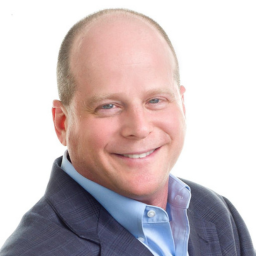Building a Culture of Belonging
How listening to learn can help leaders make better connections, both inside their own teams and within the industry at large.
By Elsbeth Russell
We never know what people are dealing with, and making judgments without knowing the full story can be seriously limiting.
That’s the message that speaker, author and humanitarian Sarah Culberson has for 2024 MHEDA Convention and Exhibitor Showcase attendees joining the Women in Industry Session and Lunch for her presentation, “Better Together: How to Build a Culture of Belonging.”
Raised in West Virginia by her adopted parents, Culberson had little knowledge of her ancestry. She grew up in a loving, white household, but questions about her identity and biracial roots led her to hire a private investigator in 2004.
She never imagined she would discover that she was related to African royalty. Her biological grandfather is the Paramount Chief of a village in Sierra Leone, West Africa, and Sarah is considered a Mahaloi, with the status of a princess.
After witnessing the aftermath of the civil war in Sierra Leone, Culberson, who now goes by the name Princess Sarah, co-founded Sierra Leone Rising, a non-profit to support the community. She shared her inspiring story in a book she co-authored titled, “A Princess Found.” Her passion for education does not stop with Sierra Leone; as director of outreach at the Oakwood School in Los Angeles, she works daily with middle and high school students.
Princess Sarah also travels around the world speaking on diversity and inclusion, empowerment and leadership.
One of the messages she hopes will inspire attendees is how to give others around us the benefit of the doubt, a concept she became intimately familiar with after learning the story of her birth parents and discovering why they chose adoption.
“It’s interesting. I think sometimes as human beings, we make up stories when we don’t know people’s truths. I made up this story, ‘Well, I wasn’t wanted, and I wasn’t enough,’” Princess Sarah said. “It wasn’t until I started doing work on myself and also working on the book, ‘A Princess Found’ that I started to see how I was buying into the stories that I created.”
Through research, Princess Sarah learned that her birth parents did the best that they could and that placing her for adoption was both vulnerable and difficult for them.
“I think it is so important that we never know what people are going through. We make assumptions about each other based on what we see, what we think, what we hear, our own insecurities or our own past that we don’t know we’re bringing into the present,” she said.
Part of this process, Princess Sarah explains, involves listening to learn rather than just listening to respond.
“It’s very hard as human beings to not listen from our point of view, but we need to be able to set our thoughts aside and be present with others,” Princess Sarah said. “Somehow when we get into the business world all of a sudden our humanness goes out the door. I really would love to look at listening to learn, having compassion and also working on the assumptions that we sometimes create about each other. We need to catch ourselves inside of that.”
For Princess Sarah listening to learn was essential as she worked through Sierra Leone Rising to help rebuild that community.
“My first thought was, ‘Oh, let’s go in and I can bring t-shirts for the students. What do they need?’ This is what we’re gonna start with in my American mind,” Princess Sarah recalled. “My birth father said, ‘Sarah, we need desks. After the civil war, kids are sitting on the ground. If you wanna help with education, we need desks, we need a place for kids to sit.’”
As she went, Princess Sarah started interviewing different groups of people within the community and quickly realized the importance of learning from all different types of people in Sierra Leone including women, children and members of the community who had suffered amputations as a result of the conflict there.
“I went in to talk to each one of these groups and I discovered that the women said, ‘We’re walking miles a day to get clean drinking water. We need help with water. Our kids are hungry at school sometimes,’” Princess Sarah said. “So, it’s great to have all these desks that were talked about, but we need to make sure our kids have the food that they need and water. All of a sudden all these other layers of importance came up.”
Meanwhile, the children in the community shared a need for safe lights so that they could complete their homework at night, and the amputee community shared a desire for farm equipment that they could rent to local farmers as a way to support themselves.
“They knew what they needed, they knew what could happen, but they needed to be asked,” Princess Sarah said. “Sometimes we think we know what other people need, or we know their experience when we really don’t.”




